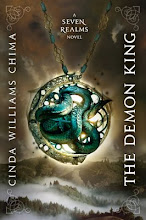Young Writer Writes:
I write poetry and some stories, and I have been told a few of them are really good. Is there some place you recommend I send them to get a professional opinion? Someone you trust that won't claim them as their own? If you have any ideas, it would be greatly appreciated.
Finding good feedback is one of the greatest challenges for all writers—but especially for young writers. First and foremost, I recommend that writers of all ages who would like to improve their craft seek out a local or online critique group before they ever send it out into the world. Take your work as far as you can on your own. That will allow you to make the most of professional feedback.
Feedback from a critique group is different from what you can get from your friends, your Mom, or the next door neighbor. The best critique comes from other writers who are as serious about craft as you are. It’s a reciprocal thing—you read their work, they read yours—everybody benefits.
You can find several previous posts on critique on my livejournal blog.
When you are ready for a professional opinion on your work, the biggest problem isn’t having your work ripped off. It’s the risk of being scammed. There are lots of so-called vanity presses, writing consultants, sketchy contests and bogus anthologies who are ready to take your money. It’s difficult to make money with short stories and poems—especially as an unknown. But you shouldn’t be paying for the privilege of being published.
It may occur to you to send your work to your favorite author for evaluation. While many authors find ways to mentor others— through blogs, websites, school visits, and workshops, most cannot take on the task of reading and evaluating your work.
One way to access professional feedback on your work for a nominal sum is through a writing workshop or conference. There may be workshops in your area through a community college, writing organization, or arts program. Often, writing conferences offer one-on-one consultations with an agent, writer, or editor for a fee. The Society of Children’s Book Writers and Illustrators is a national organization whose affiliates often sponsor regional writing conferences.
A legitimate writing contest can be a way to see how your work measures up against other submissions. But, again—beware! Some contests have high entrance fees or are fronts for vanity anthologies.
InkPop is a networking site for writers and readers sponsored by Harper-Collins which provides an opportunity to have your work evaluated by Harper-Collins editors.
TeenInk sponsors a number of contests for teen writers.
And here’s a site with a list of teen writing contests.
Another way to get feedback on your work is to submit it for publication. Be aware, however, that book and magazine editors are not in the business of mentoring writers. If your work is accepted by a legitimate publication, you will get lots of feedback! In other words, it will be edited. If it is rejected, it is usually through a form letter that doesn’t tell you what is wrong or how to fix it. Most writers—myself included—have a whole file folder full of those.
There are markets that specifically seek teen writers. Here are some links to get you started.
Teen Ink is an online and print magazine written exclusively by teens 13-17.
This is a Google directory search for resources for young writers and a site that lists best websites for young writers.
Again, do your due diligence in checking out any of these opportunities, and Good luck!













2 comments:
i love the new heir covers. but i feel more nastalgic and older with the old covers but i love em both. keep up the good work
Post a Comment